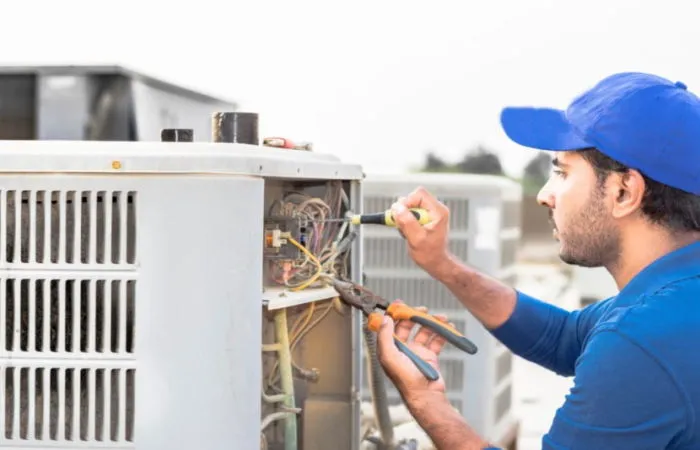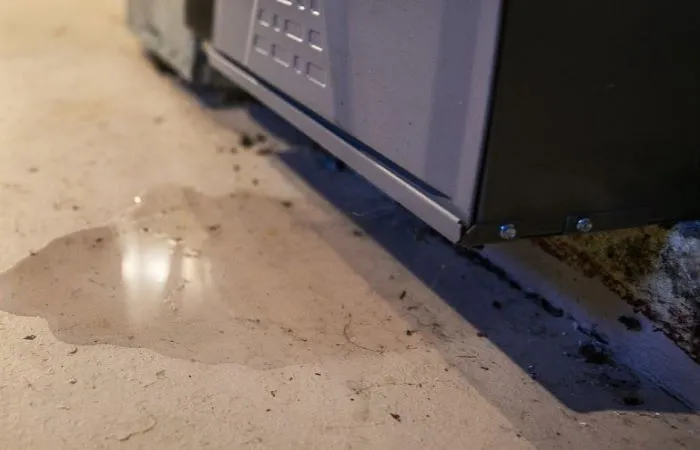Common Air Conditioner Problems and How to Fix Them
Air conditioning repairs can be costly, which is why experts advise regular maintenance and checkups for your AC units. This proactive approach can help you avoid expensive repairs while keeping your air conditioner in optimal condition.
To emphasize the significance of hiring professional contractors for preventive maintenance, let’s explore some of the common AC problems and effective ways to address them.
Common Air Conditioner Problems
The Unit Won't Turn On
This is one of the most common problems that homeowners face when it comes to their AC Services in Hamilton, ON. There are a few things that you can do when your unit won’t switch on.
First, you need to check the thermostat batteries and make sure they are not dead. If the batteries are fine, the next thing you must do is inspect the thermostat settings. Make sure that you’ve switched on the cooling mode and that the right thermostat settings are activated.
In case your thermostat is on, but your unit won’t power up, you should look into the circuit breaker. Any issues with the circuit breaker could affect your ability to turn on the AC unit. All you have to do is reset the circuit breaker.
If these minor fixes haven’t resolved the issue, we recommend calling a professional contractor at Canadian Heating and Air Conditioning. One of our technicians can perform a more thorough and advanced diagnosis of your unit to determine the source of the problem.
The Outside Of The Unit Is Freezing
Several factors can cause the outside of the unit to freeze up. This can be due to insufficient airflow, low coolant levels, and low outside temperature. There could also be an issue with the blower motor.
To prevent more serious problems, you need to call in an HVAC specialist to look into what might be causing your unit to freeze. We have the expertise and the tools to repair the issue and get your AC Repaired in Hamilton, ON.
The Unit Is Making Loud Noises
Ideally, an AC unit should operate smoothly and quietly, with minimal to no noise. If you notice your AC unit making loud noises, it’s essential to investigate for any underlying issues.
The type of sound emitted can serve as an indicator of the problem at hand. A hissing sound typically signifies a refrigerant leak, while a thumping or rattling noise might indicate an issue with the blower motor. Screeching noises could point to problems with the fan motor or compressor. On the other hand, a buzzing sound often suggests a faulty electrical component.

The Unit is Not Blowing Cold Air
The main purpose of an air conditioning unit is to regulate the internal temperature inside your home with a consistent flow of cold air. However, a dirty air filter is unable to produce cold air in your room because it blocks the flow of air in the unit.
To avoid this, make sure you regularly clean your air filter. Check your air filter at least once a month and change it out if needed. We recommend replacing your air filter at least every three months.
The Unit Has A Refrigerant Leak
There are two reasons why your unit may be low in refrigerant: this could be an issue during installation or because the refrigerant is leaking. The second situation is much more common.
In the event of a refrigerant leak, it is not enough to simply add more refrigerant to your unit; the leak must be repaired. You need a professional contractor to test the unit and make sure that the system is charged using the right amount of refrigerant. The refrigerant charge of your unit must be the same as the specified requirement of the manufacturer. This will increase the efficiency and performance of your AC unit.
There is also another important reason why you should not overlook this problem: refrigerant leaks can cause harm to the environment. Other effects of a refrigerant leak include a frozen coil, a damaged compressor, uneven cooling, and high energy consumption.
The Unit Leaks Water Outside
It is normal for your AC unit to leak water outside, especially when it is hot or humid. It is also expected when the weather outside is cold since the unit can freeze and cause a leak when the water melts.
However, you may need to have this issue checked, as it can be caused by other factors such as low coolant, a blocked drain pipe, and a dirty air filter. This is why regular maintenance is a must so that any of the above issues can be avoided.

The Evaporator Coil Is Frozen
This might be a common problem, but it requires your attention as it can cause damage to the entire unit when left unaddressed. The evaporator coil tends to freeze up when there is a lack of airflow during operation. When your evaporator coil is frozen, the AC unit can stop working.
A lack of an air filtration system within your unit can arise from various factors, including a dirty air filter, blocked ducts, or a damaged fan. It’s essential to regularly monitor and ensure the proper functioning of these components to prevent any problems with the evaporator coil. Additionally, maintaining a clean air filter not only enhances indoor air quality but also optimizes the performance of your AC unit.
When to Call in a Professional for AC Repair?
If you encounter any of the air conditioning problems mentioned above, it is advisable to promptly contact a professional HVAC contractor in Hamilton, ON. While certain issues can be resolved through DIY steps, the only way to ensure that your AC unit is safeguarded from severe damage is by seeking the assistance of a professional.
While attempting a DIY repair might initially save you some money, you will ultimately achieve greater savings by relying on a professional who can address the root cause of the problem and prevent its recurrence.











